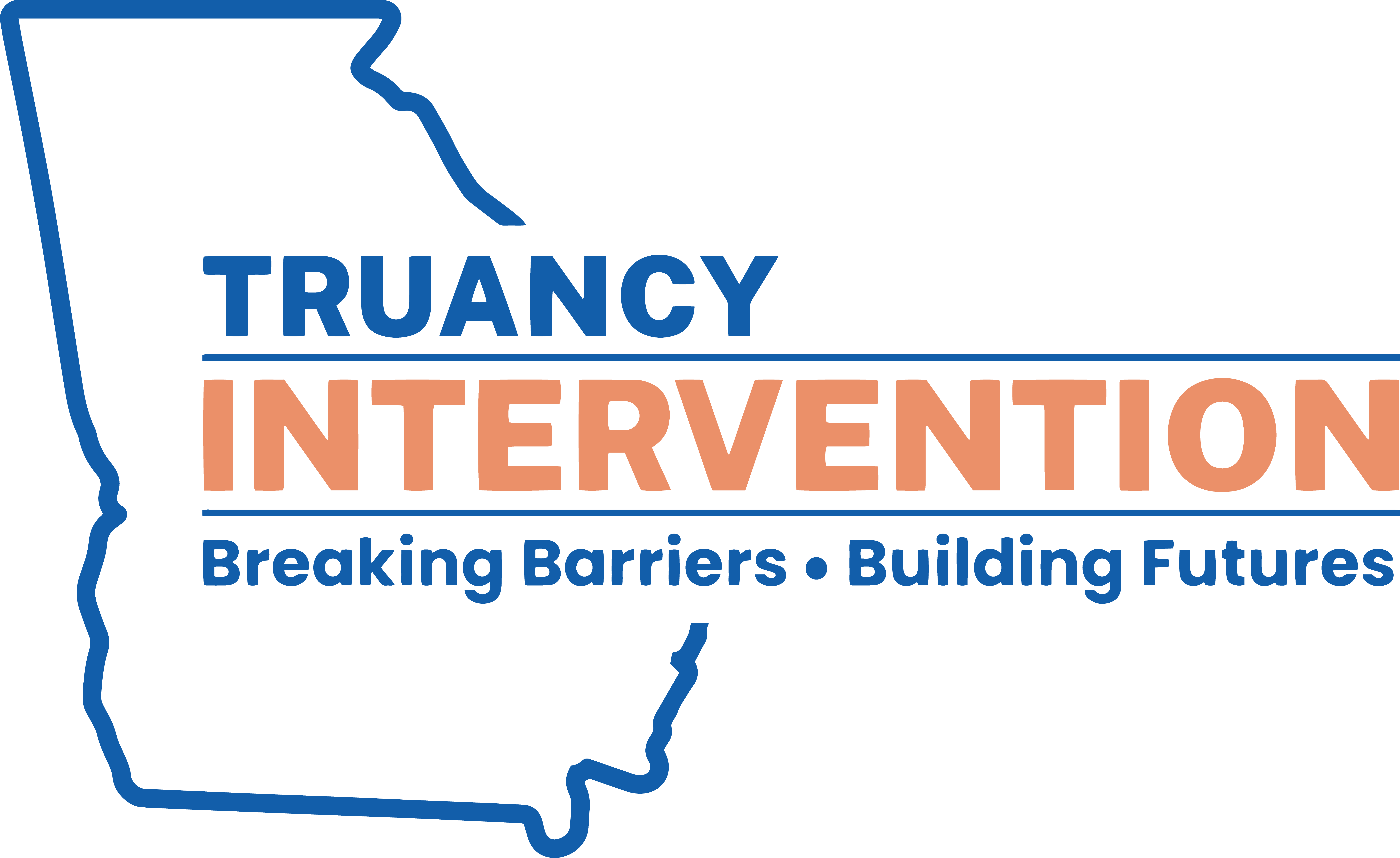You have questions?
We have answers.
Frequently Asked Questions
What is Truancy Intervention Georgia?
Truancy Intervention Georgia is a nonprofit organization focused on addressing and preventing student truancy and chronic absenteeism in Georgia. We aim to understand the underlying causes of truancy and collaborate within the realms of court, school, and community to enhance outcomes for underserved youth.
What is the cost of legal representation provided by Truancy Intervention Georgia?
All legal representation provided by Truancy Intervention Georgia is free. We are committed to ensuring that every child facing truancy issues has access to quality legal support without any financial burden.
What programs does Truancy Intervention Georgia offer?
Our organization offers several key programs, including Early Intervention for school-based support, legal and court-based advocacy, and community and statewide efforts to resource, educate and connect all stakeholders.
Can schools or individuals collaborate with Truancy Intervention Georgia?
Yes, we are open to partnerships with schools, educators, legal professionals, and community organizations. Interested parties can contact us for more information about collaboration opportunities.
How can I volunteer or contribute to Truancy Intervention Georgia?
We highly value the contributions of volunteers and donors. You can get involved by donating your time, skills, or financial support. More details can be found in the volunteer section of our website.
What impact has Truancy Intervention Georgia had on truancy rates?
Our initiatives have played a significant role in addressing truancy and chronic absenteeism across Georgia, leading to better student attendance, academic performance, and less involvement in the juvenile justice system.
How does Truancy Intervention Georgia serve the community?
Our community-based initiatives are statewide. These programs aim to establish early intervention networks and support for courts, schools and communities across Georgia.
Are there resources for parents and guardians?
We offer a variety of resources and support for parents and guardians to assist them in understanding and tackling truancy. These resources are accessible on our website and through our various programs.
What are the implications of truancy for students?
Truancy can have several long-term implications for students, including lower literacy rates, decreased academic performance, and a higher risk of dropping out of school. It can also lead to increased likelihood of engaging in delinquent behavior and encountering legal problems. Over time, truancy can significantly impact a student’s future opportunities, such as higher education and career prospects.
Is truancy linked to juvenile delinquency?
Yes, there is a notable link between truancy and juvenile delinquency. Students who are regularly absent from school are more likely to engage in unlawful activities due to lack of supervision and increased exposure to negative influences. This can set them on a path that leads to legal troubles and challenges.
How does truancy impact schools and communities?
Truancy affects schools by lowering overall academic performance and achievement rates. It can also strain resources as schools try to address absenteeism. For communities, high truancy rates are often associated with higher crime rates, reduced economic productivity, and increased social services costs.
Can truancy lead to legal consequences for students and their families?
Yes, truancy can lead to legal consequences. In many jurisdictions, chronic absenteeism is addressed through the legal system, which can involve penalties for students and, in some cases, their parents or guardians. We offer legal representation and advocacy in such cases to ensure fair treatment and outcomes.
What can parents do to help prevent truancy?
Parents can play a crucial role in preventing truancy by maintaining open communication with their children and being actively involved in their education. Monitoring attendance, being aware of academic performance, and seeking support from schools or organizations like ours when challenges arise can be effective strategies.
